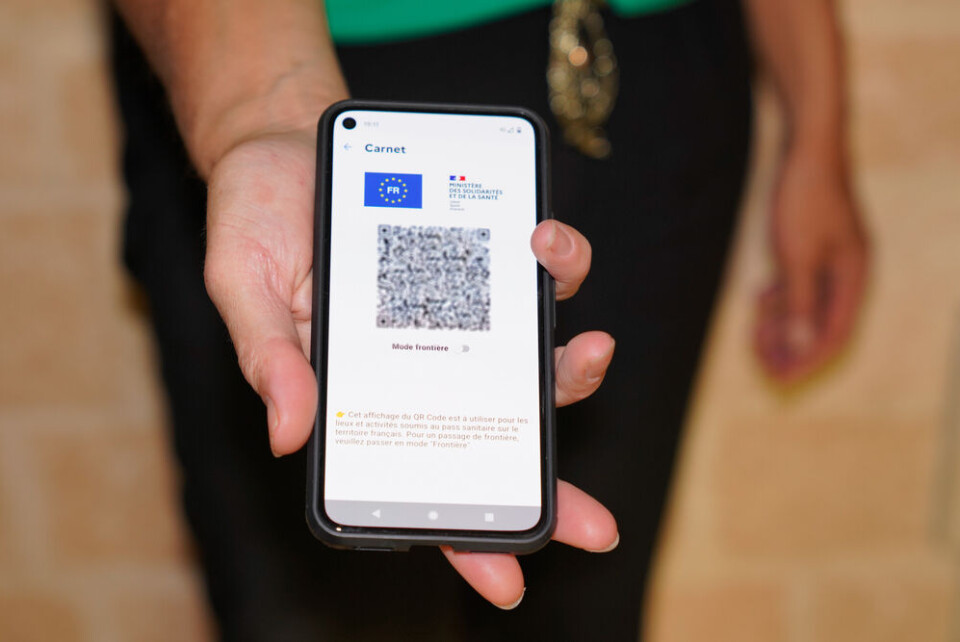-
Red flood alerts continue in south-west - and more heavy rain expected
Garonne river is particularly affected. French weekly weather forecast February 16 - 20
-
Why your car insurance in France is expected to increase this year
Premiums are forecast to rise by four to six percent in 2026
-
Two Britons killed in avalanche in French Alps were with an instructor
French skier also died in the disaster at Val d’Isère on Friday February 13
Do we have to convert our French health pass to the new vaccine pass?
It will come into effect on Monday and will see unvaccinated people locked out of places such as cafes, bars and cinemas

Unvaccinated people in France will be unable to enter the majority of leisure-orientated public spaces from Monday (January 24) as the new vaccine pass comes into effect.
The bill containing legislation for the pass was given final approval by the Assemblée nationale on Sunday (January 16) and ruled to be constitutional by the Conseil constitutionnel on Friday (January 21).
Read more: France to bring in vaccine passes: What will change and when?
Read more: The five dates in France’s new plan to ease Covid rules
It will come into force on Monday, January 24.
Read more: French vaccine pass ruled to be constitutional, it will begin Monday
A vaccine pass is not a document in of itself, and refers to either proof of being fully vaccinated, or proof of a positive Covid test taken between 11 days and six months prior.
In one exception, people who receive their first vaccine dose by February 15 can get a “vaccine pass” immediately, if they also get a negative Covid test (which will remain valid for 24 hours), and commit to getting a second dose within one month.
The Connexion has not been able to find finalised details of the form that the vaccine pass will take published on a French government website.
However, various French media sources have reported that people who already have their up-to-date vaccination records or certificate of recovery from the last six months uploaded into the TousAntiCovid health pass app will not need to do anything in order to use their vaccine pass.
The existing QR codes will automatically become valid vaccine passes, as will printed certificates.
Test result QR codes will, however, no longer work to enter places that require a vaccine pass.
Instead of TousAntiCovid, it will be TousAntiCovid Vérif – the app used to scan people’s certificates – which changes, as it adopts new algorithms in line with the new rules, allowing it to detect invalid or expired certificates.
Venue staff will therefore need to update their apps on iOS or Android. This will be done automatically after a certain length of time as long as the device is connected to the internet.
People who have not previously created a health pass can access their up-to-date vaccination certificates through FranceConnect, where they can be printed off or downloaded to the TousAntiCovid app.
Those who were vaccinated in other EU countries can continue to use the vaccination certificates issued there.
People who were vaccinated in the UK need only download or print off their NHS app QR code and then scan it to TousAntiCovid.
People vaccinated in other countries outside the EU must normally visit a French pharmacy to convert their vaccination certificates to a TousAntiCovid-compatible pass.
Read more: How can I convert my US vaccination documents to a French health pass?
What is the vaccine pass?
Vaccine passes will be required for people aged 16 and over wishing to enter public spaces such as restaurants, bars, cafés, museums and cinemas. This includes residents and tourists.
People aged 12 to 15 will be allowed to enter affected public spaces using their health pass – essentially meaning using proof of a negative Covid test from the previous 24 hours. Health passes will also remain valid for entry into medical and care settings.
If unvaccinated people wish to travel by long-distance transport such as TGV trains or domestic flights, they must be able to demonstrate “pressing grounds in relation to their family or their health” as well as a negative Covid test. The test requirement may be waived in an emergency.
The government may decide to relax the new rules within the next few weeks or months if the Covid situation improves.
In order to be considered fully vaccinated, all adults must now have had a booster vaccine dose no later than seven months after their second dose. This timeframe will be shortened to four months from February 15.
Related stories:
Recap: What Covid travel rules are in place between the UK and France
French MPs deny Covid vaccine pass comes too late to make a difference
























